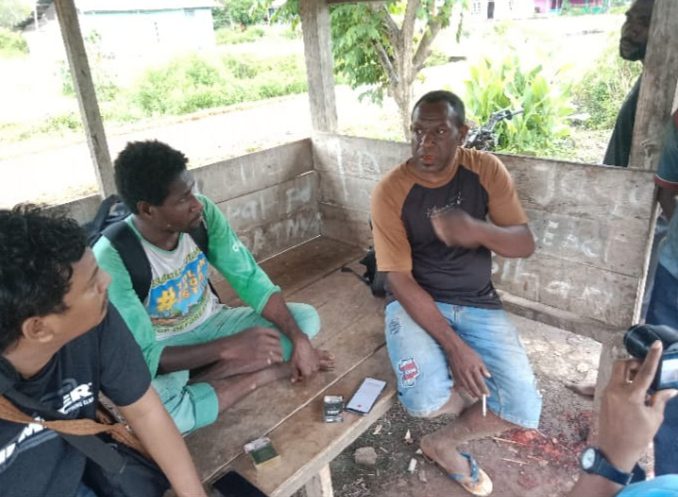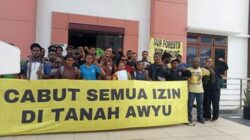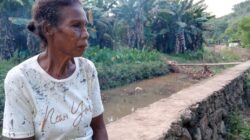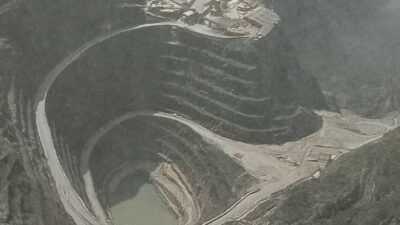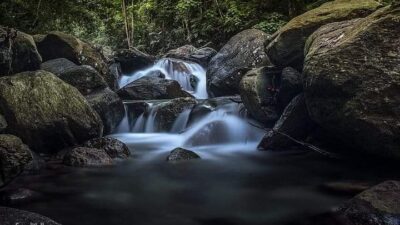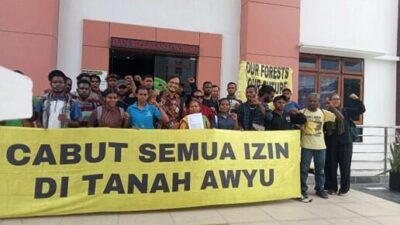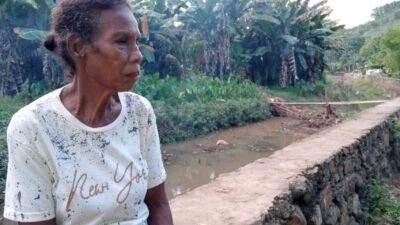Merauke, Jubi – The community and customary landowners in Kaliki Village, Kurik District, Merauke Regency reject various logging and plantation companies from entering their village. The community is worried that company activities will damage the forest.
Timothy Balagaize, the head of Kaliki Village, said the forests were essential to the community’s livelihoods, and thus, the villagers have unanimously rejected all company activities in the village.
Balagaize disclosed that back in 2006-2007, a firm belonging to the Medco Group attempted to enter Kaliki. The villagers at that time received an allowance from the company after they were promised village development. However, the company did not tell the villagers their true purpose and there was no written agreement between the two parties.
Balagaize said that between 2010 and 2011 the government revoked the company’s license because the company did not operate in the concession granted to them. The community, however, remained skeptical and wanted to confirm whether there was a written evidence for this.
“We wanted to make sure the company no longer had any ties with the community. Since then we agreed to reject the presence of any company in our village,” said Balagaize.
“With no company activities in Kaliki, our forests remain intact. Still, we need an explicit declaration from the government to confirm the revocation of the concession. We wish to avoid any possibility of the company claiming otherwise at a later point in time,” he added.
Otniel, a resident of Kaliki, highlighted that the reason behind rejecting companies was to safeguard their forests. The forests, according to Otniel, play a vital role in supporting the livelihoods as well as the socio-cultural life of the Malind people. Certain trees are associated with totem symbols or held in high regard due to their perceived dignity.
“Managing animals, sago, and other natural resources has sustained our lives across generations. The people hope the government has truly nullified the company’s license in Kaliki,” Otniel said.
Peatland in Kaliki
Timothy Balagaize said the majority of the terrain in the village comprises an unexploited peat ecosystem. For the locals, this peatland is like a small paradise that sustains their lives.
“The peatland is incredibly beneficial as it safeguards numerous natural resources such as fish, game, and serves as a source of water. The people in Kaliki depend on it for their livelihoods. We are very grateful for having the peatland and therefore take great measures to protect it,” he said.
Apart from providing game, the Kaliki people employ the peatlands for cultivating local produce such as sago, rice, mangoes, bananas, cashews, pineapples, and other fruits. These crops not only serve their own sustenance but also contribute to the economic growth of the community as they can be sold in the market.
“For generations, we have protected this peatland. From a cultural point of view, numerous trees in the peatland hold great significance in our tradition. A lot of swamp grass and trees are related to totem symbols, so we protect them. That is why we don’t want external parties such as companies that may harm the petland,” Balagaize said.
He further stated that a small-scale fire had occurred in the peatland a few years ago, but it was not caused by the company’s operations. The fire was a result of the Malind tradition of hunting animals towards the end of the dry season. This practice involves burning a section of the forest, which promotes the growth of new shoots, attracting animals for hunting purposes. He added that the fire did not cause significant damage.
Kaliki Village comprises 127 households and has a total population of 531 people. The village is home to six clans, namely Gede, Kaize, Balagaize, Mahuze, and Ndiken.
Meanwhile, the government has recently granted a concession of 164,400 hectares to PT Selaras Inti Semesta, a subsidiary of PT Medco. The company’s operations in the industrial plantation forest sector cover a substantial portion of the Kaptel and Anim Ha districts, including Zenegi, Domande, and Buepe villages. The operating area is in close proximity to several villages including Kaliki. (*)


